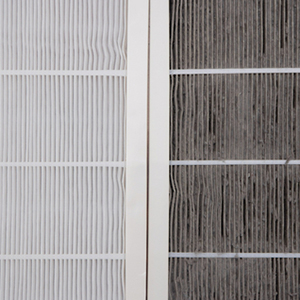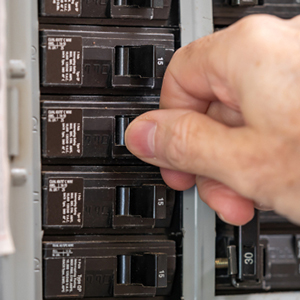- >
HVAC Troubleshooting Guide for Homeowners
- By: Cheli Scott
- Date: Oct 20 2022
Similar Articles
What you Need to Know About Ductless Air Conditioning
Many consumers are unfamiliar with ductless air conditioning systems. We've assembled some info to help you learn!
How to Choose a Replacement Thermostat
The part of your HVAC system you interact with the most is your thermostat so let us help you choose the right one for your home!
How to Air Balance your Home
If you are concerned about your current system's performance, it may be time to consider investigating how to air balance your home.
HVAC troubleshooting guide for homeowners
Your HVAC system is one of the hardest working appliances in your home, so it makes sense for every homeowner to know some basic HVAC troubleshooting tips in case there are problems. When your HVAC system breaks down your home can quickly become miserable, whether it is becoming too hot or too cold. Before you call a technician, there are some things you can do to check for potential issues and possible quick fixes.
The dangers of going without air conditioning in the summer have been extensively documented. Heat kills about 600 people every year. Some heat related dangers include dehydration, fainting, and heat stroke.
Going without a heating system in the winter can be just as dangerous. Cold conditions can cause pneumonia, hypothermia, and colds. With that in mind your HVAC system isn’t optional it is essential to your well-being.
Depending on where you live, it may take days or even weeks for a technician to make it to your home. We have assembled the ultimate HVAC troubleshooting guide to help you get your air conditioning up and running quickly, so you don’t have to experience discomfort.
Check your air filter
Air filters are one of the most important, but often overlooked parts of air conditioner maintenance. If you forget to check you air filters for months dust and other particulates build up and block air flow. This can cause your air conditioner to work harder and it will also prevent warm and cool air from reaching its destination. It is a good idea to keep some extra filters around so you can quickly replace a blocked one.
Check your outdoor air conditioning unit
Since your air conditioning unit is outdoors it can sometimes become crowded with leaves and branches. If you are having problems, you may want to check around your air conditioner and make sure nothing is blocking airflow. It is a good idea to leave two feet of clear space around your air conditioner for optimal results.
Check the ductwork of your HVAC system
While your air conditioner is operating it moves dust and other particles with the air. Ducts may become blocked with dust over time, so you may need to have them professionally cleaned once in awhile.
Check your vents
If you are experiencing weak air flow or your air conditioner is not heating and cooling properly, the answer may be simple. Check your floor and ceiling vents and make sure they aren’t blocked. You may need to open the fins of the vent or clear debris from it that is blocking air flow.
Sometimes toys or laundry accumulate over vents, preventing air from passing through.
Check that your air conditioner has power
If your air conditioner suddenly stops working it could simply be because the power is off. Check your circuit breaker to make sure the power is turned on.
Check your thermostat
Some thermostats are battery powered. You may be experiencing problems because you need to replace the batteries. If it is not battery operated it may be a faulty thermostat that will require professional help.
Check for frozen coils
Air conditioner coils have the possibility of freezing, which can cause your unit to malfunction. You can tell your coils are frozen if you see ice accumulating on them or water pooling around your unit. Your air conditioner may also run but fail to put off cooled air.
Usually, coils freeze because airflow is blocked. Simply changing dirty air filters can fix this problem. You can also try turning off the thermostat and letting the fan run for a few hours to give the coils time to melt.
If the air filter isn’t the issue it could also be a refrigerant leak.
Common HVAC system problems
Bad Smell
If there is a bad smell emanating from your HVAC system it could be a couple of serious problems. One dangerous possibility is that your system has developed mold.
Mold can cause difficulty breathing, headache, fatigue, and coughing, so it is a serious issue in your home. In order to prevent mold and mildew from developing in your system be sure to seal any leaks that could allow moisture to build up.
If the scent smells like burnt plastic, its possible there is an electrical problem and you need to call an electrician.
Strange Noise
One way to identify a problem is by ear. If your air conditioner is making loud noises you should take some time to check it out. A likely culprit is the fan. Check to see if the fan is damaged. If it is, you can call a technician to fix it.
Another simple possibility is that there is some debris blocking the fan and preventing it from spinning properly. You may just need to perform a routine cleaning to fix the problem instead of calling a professional.
Short Cycling
Short cycling is when your air conditioner runs for a short amount of time and then shuts off. This is a sign of a problem and adds wear and tear on your unit.
To avoid this issue make sure to change or clean your air filters regularly so that dust and dirt don’t cause a blockage. If you’ve checked your filters and your unit is still short cycling it is time to call a technician because it might be a more serious issue.
When to call a technician
There are going to be some HVAC problems that you just can’t fix on your own. In that case, don’t be afraid to call a technician. For example, electrical issues are best dealt with by a trained professional. Ductwork is also an area that may require someone with experience.
Regular maintenance helps prevents problems, but it is also a good idea to have an HVAC technician inspect your air conditioner once a year to ensure it is in good working order.
A technician will inspect refrigerant levels, electrical wiring, check the condenser unit, clean the coils, lubricate parts, and tighten lose hoses and connectors. A little extra effort ahead of time could save you a lot of heartache in the future.
HVAC troubleshooting
HVAC troubleshooting doesn’t have to be difficult. With these simple HVAC troubleshooting tips you will be able to diagnose your air conditioning problems and decide whether or not professional help is necessary.
When diagnosing, be sure to look for the easy answers first. Simple issues like a tripped circuit breaker can be solved without spending any money at all. Many common problems simply arise from lazy maintenance and can be fixed with a trip to the hardware store.
However, if you are uncomfortable with HVAC issues you should feel free to work with a professional technician like the ones at bhild.com. Call us today, or fill out our form here for a free estimate on HVAC services today!











